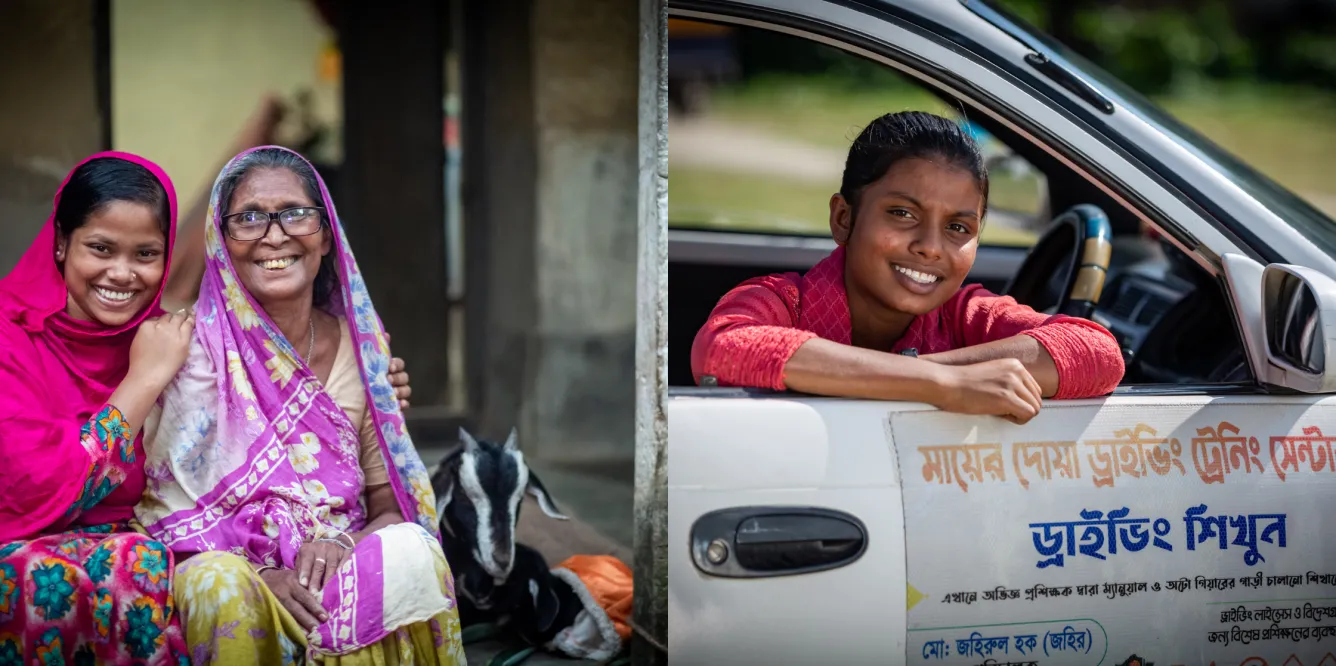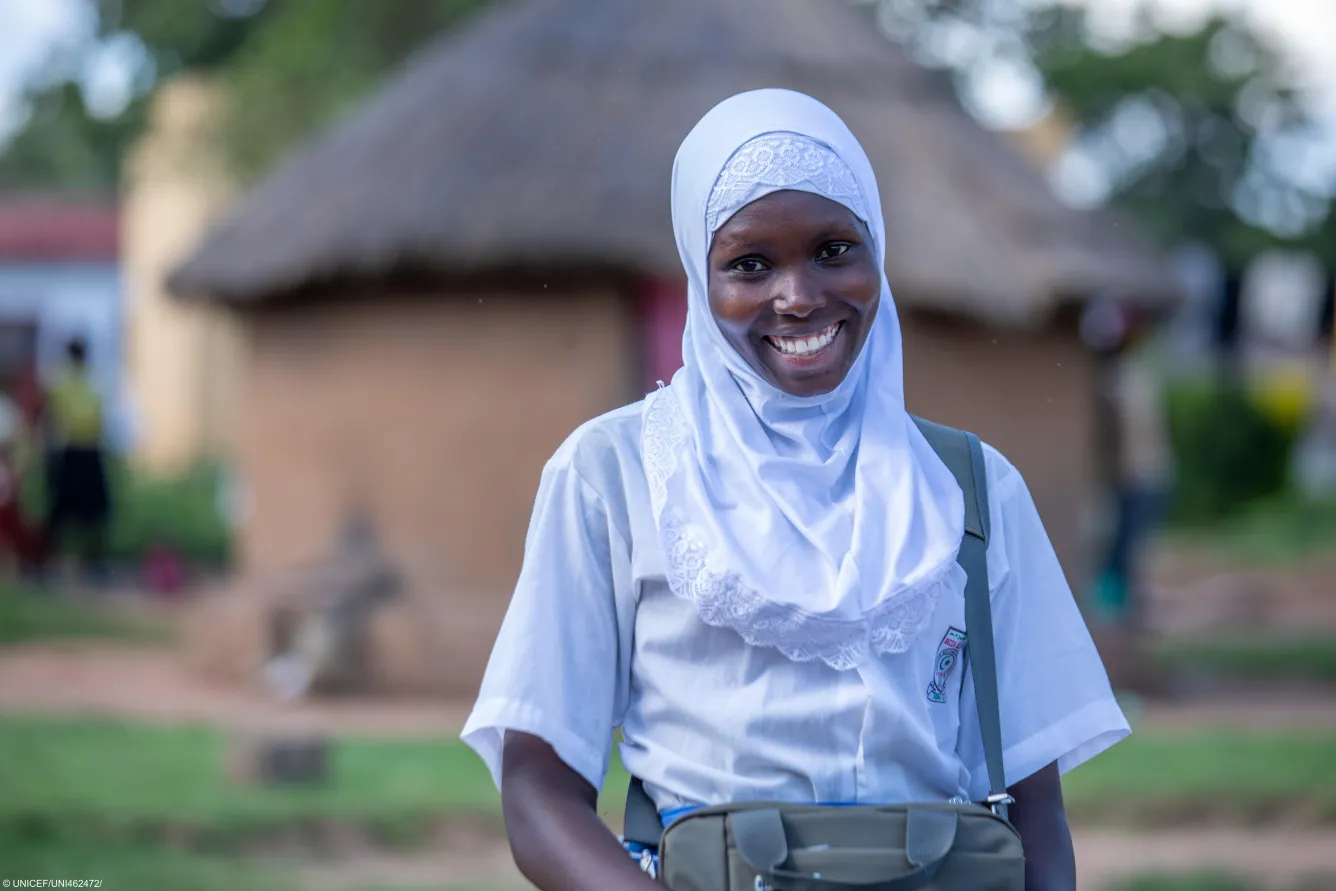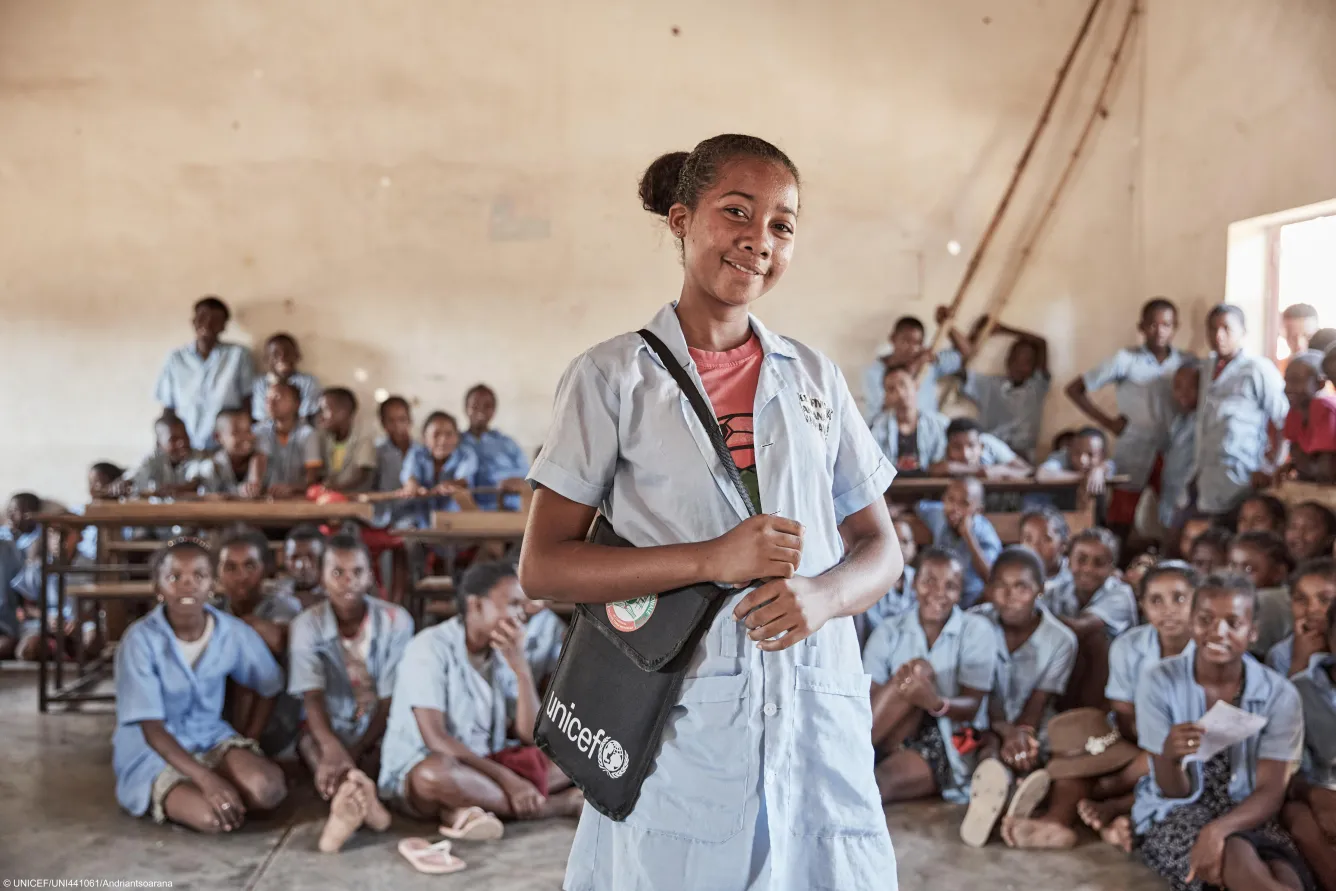Changemakers: The power of adolescent girls
Adolescent girls are the face of courage, strength and resilience. They are powerful changemakers driving progress in their families, schools and communities.
Yet, they are often overlooked, uniquely vulnerable and face disproportionate discrimination and inequality - they often fall through the cracks where they’re too old for services for children and not old enough for services for women.
100 million girls of secondary school age today are out of school. Adolescent girls are twice as likely as adolescent boys to be not employed or enrolled in education or training.
It’s a gap we need to fill.
Research shows that every additional year of schooling for a girl increases her future earnings by up to twenty percent. On average, an educated girl will earn almost twice as much over her lifetime as a girl without schooling. With a little bit of our support, the world’s 600 million adolescent girls can become the largest generation of female leaders the world has ever seen.
UNICEF is working to remove barriers so that girls can access the support and services they need to shape the future they deserve. On International Women’s Day, here are some stories of hope and hard work.
Lima and Nipa, Bangladesh

After being abandoned by her father Lima found support in her maternal aunt, who became her pillar of strength and pushed her to keep moving forward. Lima had to drop out of her school but was able to enroll in a trade skills program to ensure she had the skills to become financially independent later in life.
UNICEF's Alternative Learning Program enabled Lima to learn tailoring skills. Under the guidance of her initially skeptical teacher, Nazim, Lima excelled in this skill and secured a placement in his mini-garment business.
Like Lima, Nipa was forced to drop out of school in 2019 due to acute poverty. The pandemic made the situation more dire, as Nipa’s family faced even more hardship and struggled to survive.
UNICEF's Alternative Learning Program enabled Nipa to enroll in a skill-based initiative. Breaking gender norms, she chose to learn driving and excelled under the tutelage of her Zahir ul Haque. Now, as a driving instructor, Nipa earns enough money to support her family and fund her education.
UNICEF continues to create alternative learning pathways, ensuring a brighter future for youth like Nipa.
Fancy, Uganda

Fancy, 23, is an adolescent peer advocate in Adjumani, Uganda. As the COVID-19 pandemic devastated the world, she dropped out of school, got pregnant and was married off. She now has two children, aged 2 and 3.
A year after the lockdown was lifted and schools reopened in Uganda, Fancy attended a UNICEF-supported life skills training for young people who had dropped out of school. After the training, she returned to school and is currently sitting for her national examinations.
Fancy also gives back to her community by taking time out to share knowledge and life skills with other adolescents, encouraging them to return to school.
As part of this program, a total of 1,914 adolescents, 1,001 girls and 913 boys, were profiled for return to learning in schools or alternative learning platforms like the Accelerated Education Program. More than 800 adolescents, half of them girls, have obtained foundational learning skills needed for life and work.
Jocelyne, Madagascar

Jocelyne, 15, is her final grade at secondary school. She is the only girl in a family of four children. Coming from a family of farmers, she had almost stopped studying and was about to drop out of school to support her family. Fortunately for her, her grandmother paid the registration fee for her school. Then, as part of UNICEF and partners' Let us Learn program, she received supplies to support her education. The program is a retention and prevention strategy that creates opportunities for vulnerable adolescents, particularly girls. It focuses on three pillars of equity: reaching out-of-school children, expanding girls' education, and improving quality outcomes for learners.
“I’m going to do my best for this school year in order to graduate and move on to high school next year,” says Jocelyne. In the future, she would like to become a nurse.
This program also aims to help out-of-school children return to school and stay there. Aside from teacher training, distribution of education supplies, or classroom construction, UNICEF also provides certain schools with internet connections to promote digital education.
